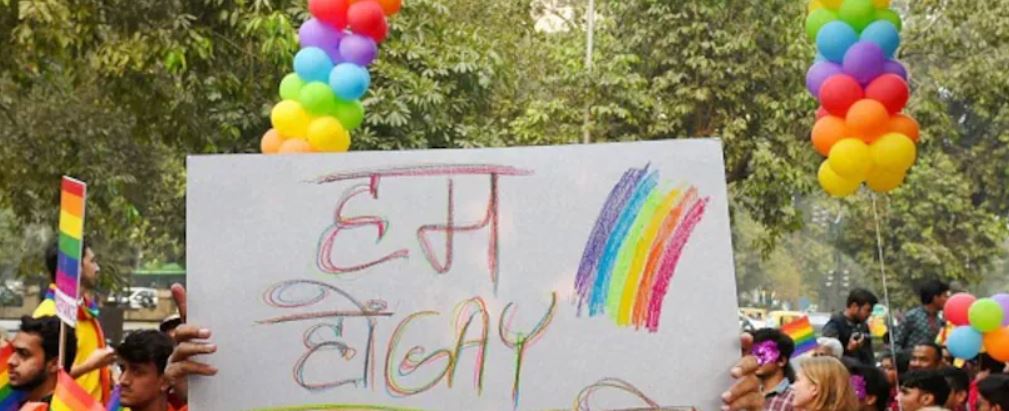The Supreme Court of India is poised to review its landmark decision, delivered last October, which denied legal recognition to same-sex marriages. The session, scheduled for July 10, will see a five-judge bench, led by Chief Justice D. Y. Chandrachud, reconsider a slew of petitions seeking a reassessment of this contentious verdict.
Revisiting the Verdict
On October 17 last year, the apex court issued a significant ruling, unanimously declining to grant legal recognition to same-sex marriages under the Special Marriage Act. The court articulated that the right to marriage is not “unqualified” and rests upon the existing statutory frameworks. Despite this, the court underscored the necessity to protect queer individuals from discrimination, advocating for their rights to access goods and services equitably.
Judicial Deliberation
The review petitions will be examined in chambers by the bench comprising Chief Justice Chandrachud and Justices Sanjiv Khanna, Hima Kohli, B. V. Nagarathna, and P. S. Narasimha. This process, adhering to judicial norms, will occur behind closed doors, away from the public eye.
Advocacy for Queer Rights
LGBTQIA++ activists have tirelessly campaigned for the legal recognition of same-sex unions, a fight that saw a significant victory in 2018 when the Supreme Court decriminalized consensual gay sex. The current plea aims to extend these rights further, seeking legal acknowledgment of same-sex marriages and associated benefits such as adoption rights, parental recognition in schools, and access to succession and insurance benefits.
Diverse Judicial Opinions
The October verdict was multifaceted, featuring separate judgments from each of the five justices. Chief Justice Chandrachud authored a comprehensive 247-page judgment, emphasizing the natural and non-elitist nature of queerness. While Justices Sanjay Kishan Kaul and S. Ravindra Bhat (both now retired) provided supporting yet distinct perspectives, Justice Hima Kohli and Justice P. S. Narasimha concurred with varying degrees of agreement.
Government Assurances
The court also recorded an assurance from Solicitor General Tushar Mehta that the government would form a committee, chaired by the Cabinet Secretary, to outline the entitlements of queer couples in unions. This assurance aimed to address some immediate concerns raised by the petitioners regarding the socio-legal recognition of their relationships.
Future Prospects
The impending review brings a renewed sense of hope among LGBTQIA++ communities and their allies. Many view the Supreme Court’s willingness to reconsider its previous stance as a potential stepping stone towards greater inclusivity and legal recognition. The decision to reexamine the issue could pave the way for legislative changes, pushing the societal and legal boundaries towards acknowledging and respecting diverse forms of unions.
Anticipated Impact
The outcome of this review has far-reaching implications, not just for the queer community but also for the broader discourse on human rights and equality in India. It holds the promise of a more inclusive legal framework that recognizes the rights and dignities of all citizens, regardless of their sexual orientation or gender identity.
Conclusion
As the Supreme Court prepares to revisit its decision on same-sex marriage, the nation watches with bated breath. The possibility of overturning the previous verdict offers a beacon of hope for many, symbolizing progress and the relentless pursuit of equality. The court’s deliberations will undoubtedly shape the future of LGBTQIA++ rights in India, potentially heralding a new era of legal recognition and societal acceptance.
Summary Table: Key Learning Points
| Key Learning Points |
|---|
| Supreme Court to review last year’s verdict on same-sex marriage. |
| Five-judge bench led by CJI Chandrachud to consider review pleas. |
| October 17 verdict denied legal recognition to same-sex marriages. |
| LGBTQIA++ activists seek legal acknowledgment and associated rights. |
| Government assured to form a committee to define entitlements. |
| Review outcome could influence future legal and societal norms. |
| Potential for legislative changes to recognize diverse unions. |
Soumya Smruti Sahoo is a seasoned journalist with extensive experience in both international and Indian news writing. With a sharp analytical mind and a dedication to uncovering the truth, Soumya has built a reputation for delivering in-depth, well-researched articles that provide readers with a clear understanding of complex global and domestic issues. Her work reflects a deep commitment to journalistic integrity, making her a trusted source for accurate and insightful news coverage.



